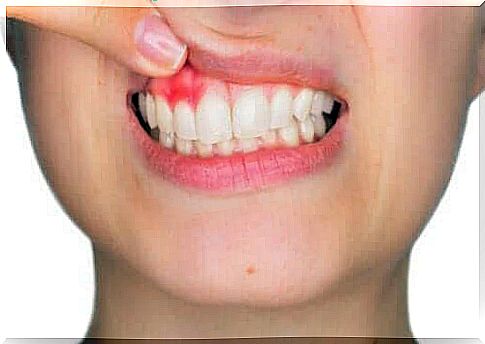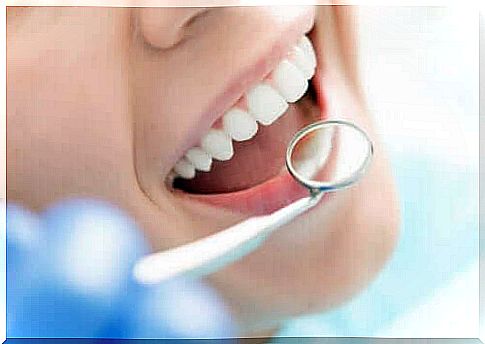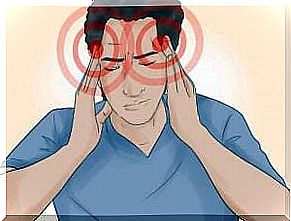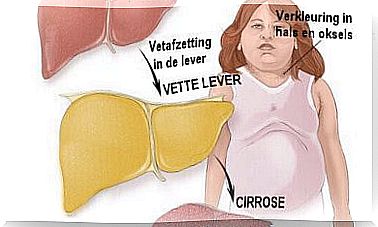Use Of Hyaluronic Acid In Dentistry

Hyaluronic acid in dentistry has proven to be an effective treatment for oral mucosal disorders. It is a substance that is naturally present in the gums.
High molecular weight hyaluronic acid is used in treatment products because it is very similar to the natural substance found in gum tissue.
The studies that researchers conducted showed that the hyaluronic acid can be used as a treatment, as it has properties similar to those of the hyaluronic acid that our bodies make. It contributes to the healing process and helps repair damaged tissues.
How does hyaluronic acid act on the oral mucosa?

Hyaluronic acid or hyaluronan is stored in the outer layers of healthy gums. It works by forming a protective barrier over the mucosa, preventing a wound or injury from coming into contact with food and drink.
Another property of it is that it helps to reduce inflammation and discomfort thanks to its anti-edema effect. It also helps to cure canker sores. If you have periodontitis, the affected tissues also have an increased need for hyaluronic acid.
What if you are deficient in hyaluronic acid?
As we mentioned before, your need for hyaluronic acid increases when you have a condition. Therefore, this need implies that there is not enough of this substance, which leads to inflammation and pain.
When the mucous membrane of the mouth is damaged, the cells responsible for regenerating the tissue come to this area, delaying healing.
Hyaluronic Acid in Dentistry
Dentists often use hyaluronan in the treatment of various conditions of the mouth, including the following:
- Mucosal inflammation: This includes gingivitis, gingival hemorrhage, gingival retraction, or gingival pockets.
- Conditions due to injury: especially wounds, mouth cleanings, tooth extractions or post-operative treatment.
- Certain diseases: There are diseases in which the mucous membrane of the gums needs a greater supply of hyaluronic acid.
What are canker sores?
Canker sores are small sores with a whitish background and red edges. They generally appear on the tongue, on the inside of the cheeks and on the gums.
They are more common in children and adolescents. In many cases, they cause severe pain upon contact with certain foods or drinks.
Hyaluronic acid treatment helps to relieve the pain and discomfort caused by canker sores. This is because it protects the wound and also speeds up the healing process.
Benefits of Hyaluronic Acid in Dentistry

Hyaluronic acid is currently widely used in dentistry. It offers a number of benefits, including:
- Pain relief: it forms a kind of membrane that protects the injury and relieves pain.
- Protection against external influences: we are talking here about influences from, for example, food and drink.
- Tissue hydration: By forming a film, hyaluronic acid promotes water retention and thus hydrates the affected tissue (Spanish link).
- Contributes to the healing process.
In addition, this substance does not hurt when applied. On the contrary, it gives a sense of relief.
How do you use hyaluronic acid?
After your daily oral hygiene, apply hyaluronic acid three to five times a day for 3-4 weeks. However, we recommend that you wait half an hour after application before eating and drinking.
There are several products on the market that include this substance in their composition. Depending on how you use them, they are classified as:
- Oral Gel: Apply a thin layer to the affected area and massage in with a clean finger to distribute it evenly.
- Rinse: Rinse with 10 ml for 1-2 minutes, no need to dilute it.
- Spray: Each spray guarantees that it reaches the entire area with the same concentration. In general, the manufacturers recommend 1 or 2 sprays per day on the inflamed area.
Hyaluronic Acid in Dentistry
Hyaluronic acid has no local or systemic pharmacological effect on the oral mucosa. It is very safe and has no contraindications or side effects. So you can use it without any restrictions. It is ideal to use on children as it does not hurt when applied. It is also non-toxic.









